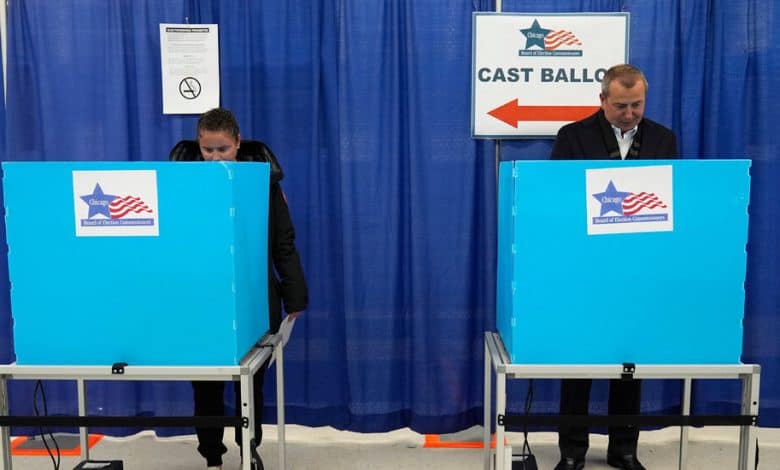Chicago Tax Referendum and Prosecutor Primary Are Too Close to Call

Vote counting continued in Chicago on Wednesday afternoon, where two high-profile local races from Tuesday’s primary election were still too close to call.
According to unofficial results from city officials, a referendum that would change the city’s real estate transfer tax and raise rates on high-value properties to fund homelessness programs appeared to be failing in the tabulated vote, but thousands of Election Day and mail ballots remain to be counted.
In the race for the Democratic nomination to be the top prosecutor in Cook County, Ill., Eileen O’Neill Burke, a retired appellate judge, held a slight edge over her opponent, Clayton Harris III, a university lecturer and former prosecutor. Cook County includes Chicago and some of its suburbs.
Both the ballot measure and Mr. Harris’s candidacy were backed by Chicago’s progressive establishment, leaving many city officials and activists frustrated by the potential failure of both. Mayor Brandon Johnson, a Democrat who took office last year, championed the ballot measure.
Twenty precincts in Chicago were unable to report results on Tuesday night because election judges did not or could not properly transmit results and left the sites without a final tally, election officials said.
“Ultimately, the picture for contests will be much clearer by this weekend,” Max Bever, a spokesman for the Chicago Board of Election Commissioners, said in an email.
Mr. Bever said that 176,870 ballots were mailed to voters who had requested them for Tuesday’s primary election. Only 66,339 of those ballots were received by Monday and counted in the initial results. Ballots that are postmarked by Election Day must be counted, even if they arrive later this week.
Only 20 percent of registered voters in Chicago cast ballots.
Both candidates in the state’s attorney race are vying to succeed Kim Foxx, a Democrat who arrived in office in 2016 promising to change the criminal justice system with a progressive platform. She chose not to seek re-election this year after two terms.
The winner of the Democratic primary will face a Republican in November, though countywide partisan races are rarely competitive.
The ballot measure called for reducing the city’s real estate transfer tax on properties that sell for less than $1 million, but imposing higher rates on homes and commercial buildings that sell for more than $1 million. The extra money — supporters say it would be at least $100 million each year — would be put toward addressing homelessness, with the details of that spending to be finalized later.
Opponents of the measure agreed that homelessness was a problem, but argued that the tax would deal another blow to an office real estate market still mired in a post-pandemic vacancy crisis.